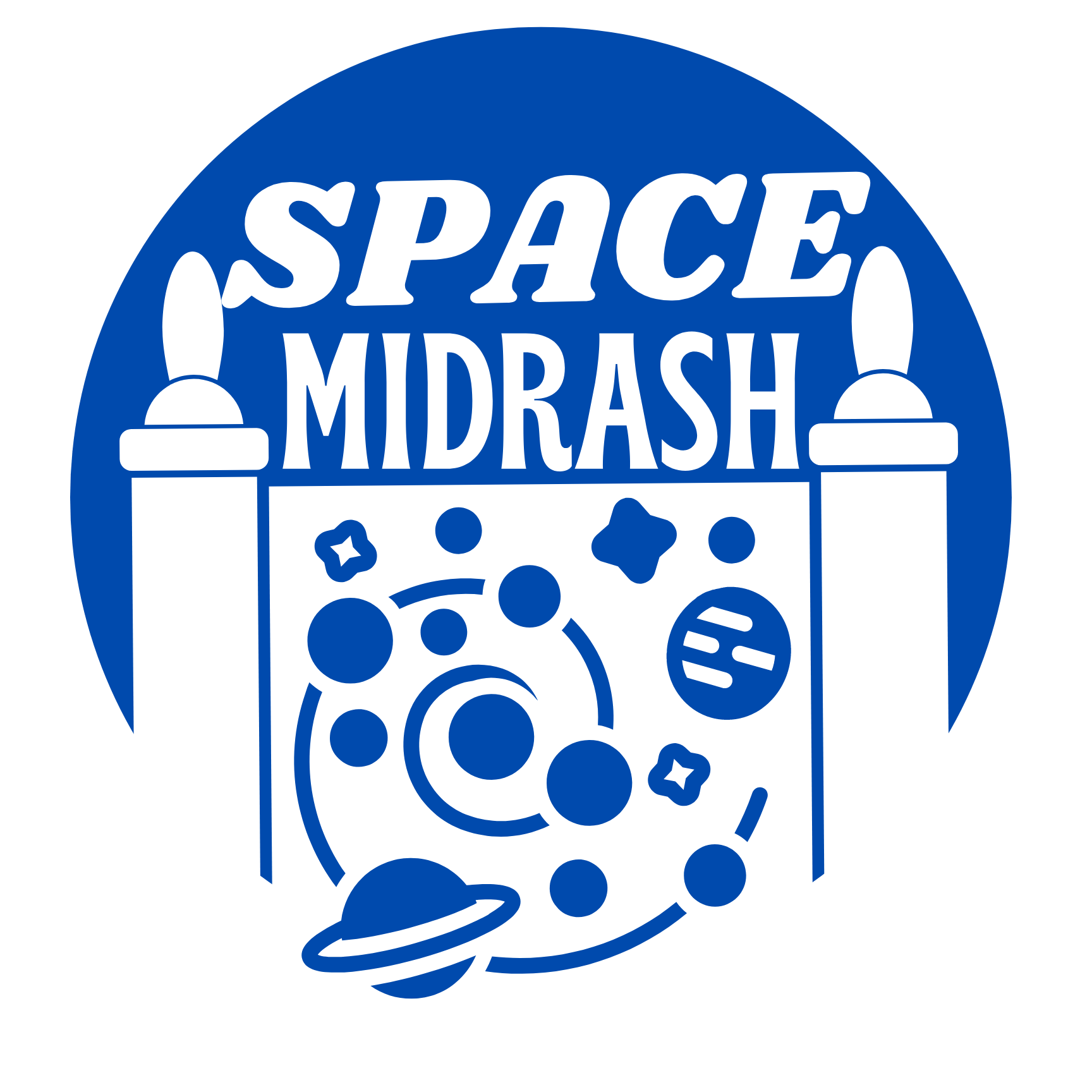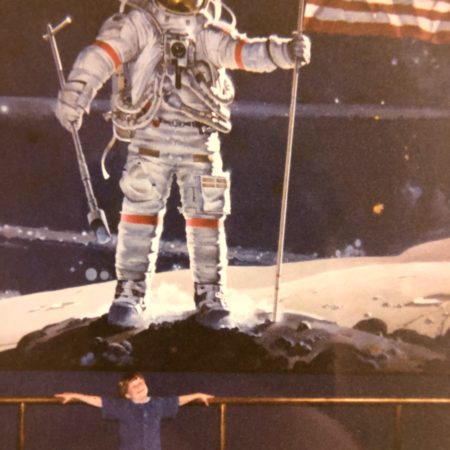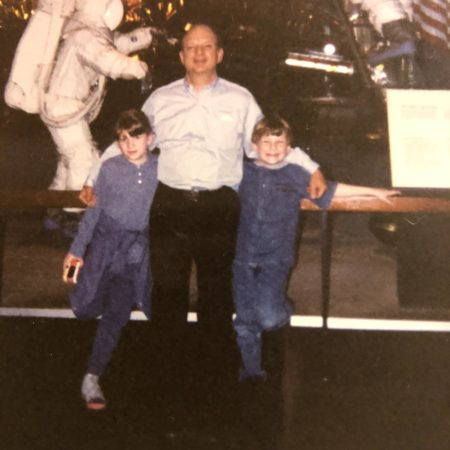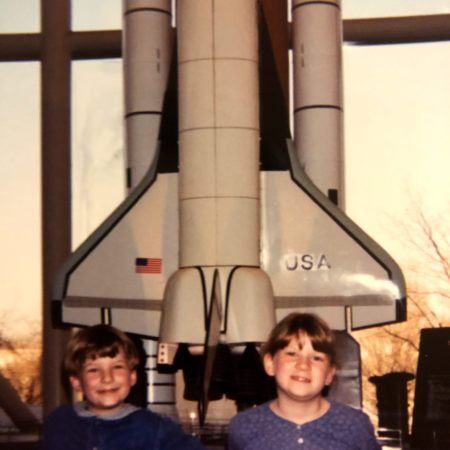
In episode one of Space Midrash, Jacob introduces himself, presents the space-related headlines which inspired this show, and provides his commentary on why those news headlines matter.
Space Midrash is a podcast that explores the intersection of Jewish civilization and the space age. Our goal is to promote understanding and cooperation between these two areas.
Jacob Sager is the host of the Space Midrash podcast.
- How space is becoming increasingly important in our world
- The increase in the number of disputes related to space
- The recent overturning of laws in Israel that excluded converts to Judaism
- The proliferation of live stream channels that offer different perspectives on rocket launches
- How the space age may impact the Jewish people
- How Jewish people can take advantage of opportunities in the new space age
Links:
Jewish Space Lasers is just the most recent incarnation of anti-Semitic stories
Space Court would be more than an international trade court, it’d be interplanetary
Orthodox religion refused to include or adapt, so the supreme court had to intercede
https://www.insider.com/voyager-station-first-ever-space-hotel-set-open-in-2027-2021-3
Download Supercluster App to follow launches
https://apps.apple.com/us/app/supercluster/id1500045135
https://play.google.com/store/apps/details?id=com.supercluster.tracker&hl=en_US&gl=US
Please share your story about your jewish identity and space with me on Space Midrash facebook page.
BONUS: pictures of Jacob at Air and Space Museum, 1990s
Transcript
opening
You are listening to space Midrash. I am your host, Jacob Sager. And on this podcast, we’re on a mission to probe the intersection of Jewish civilization and the space age. Shalom. This is episode one of space midrash. And this episode I’ll introduce myself, present the space related headlines, which inspired me to start this show. And share the questions that opened up for me as a result. I have long ago, put aside my moxie for space, but recently discovered it means more now and in the future than I could have imagined back then, this is episode one of the space Midrash podcast.
When I was a kid, I got really into space and it started in first grade with one of those I can read chapter books. The book I picked up was on Apollo 11. And as I made my way through the 7, 8, 9 chapters or whatever it was with big texts to big pictures. I just fell in love and in wonder with the human space program at that point.
And wanted to know everything I could about planetary science, space missions, everything that had taken place in particularly the Apollo program. I was so much of an interest that when I went to second grade, and we got to this Space unit, my teacher sent me back to tell the first graders everything I knew about space, because I think I was probably a little bit too annoying to her with too many questions and too much to say. It got so intense in my nerdom that, one year on July 20th – the anniversary of the moon landing, I had my mom get a cake from the grocery store to celebrate. And our neighbors were over for a swim and asked whose birthday it was. And we had to tell them that I was a gigantic nerd.
And I remember I was like, I just was not much of a math or a science student, although I had a wonder for it, just not much of an aptitude. Or the full skill set there. And when I reached my high school years, the shuttle program was starting to wind down in a particular event. Let me know, or turned me off to the whole space program.
And that was the explosion that took the space shuttle Columbia, which included Israeli astronaut Ilan Ramon, that was in 2003. And I remember that morning, my parents were out of town. It was a Saturday morning. And I had just received a cell phone weeks beforehand. And all of a sudden early in the morning, the house phone was ringing and I didn’t pick it up.
And then my cell phone started ringing. My parents called because they heard the news. We live in central Texas. They wanted to know if everything was okay. And at that moment, A huge piece of my interest in exploration, talking about space, came to an end. And I didn’t really talk or think about it. Too much for a long time.
However, as I move forward, I realized looking back that my interests always came to this place about space. When I was in college, I’d collect books that were coffee table picture books that photographs taken either by satellites or by. High altitude Plains of farmlands of cities or other things like that. And it would always find great wonder in that. Just imagine what it would like to be seen something from that height with my own eyes.
And when I was in college, I noticed that, there was private companies that were really starting to come up and I even knew people. Who were starting to work for? For instance for Facebook space program back then, And I didn’t think much about it. I was still greatly shaded by the end of the settle program.
However in the last year. The space. News of 2020 and 2021. These headline have really changed my mind and opened up my eyes a bit. And early in 2021, I learned about the overview effect from a question on Quora about how astronauts’ personal perspectives are changed after going in outer space. And it described how Frank White had cataloged the overview of fact in his book, the overview effect, but I forgot that term.
And then in January, my fourth child, my daughter Zeri Kocavhit was born and in Hebrew that means the wreathed, little star. And as she’s been in this world and filling out her first six months, my love of space, my Moxie, my interests, my desire to talk to people about this and open them up and turn them on to what’s really going on in the present moment, not in the future, but right now, Has just really grown and become real. So I want to thank her for coming in the world and bringing that to me. But that is who I am.
My name is Jacob Sager. I’m a father of four. I live in Austin, Texas. And as I just explained, I love space. So I want to tell you now about the headlines in 2021, that we’re all together towards the beginning of the year. And how they relate to space the present moment and the near future.
Every single day, there is another space headline in 2021. So I want to jump back towards the beginning of the year and the end of last year and go over a few headlines in particular. And then bring ourselves to the present moment here in July, 2021.
But the first and most important story that brought me to this was the story of a sitting US legislator in the house of representatives who accused wildfires in California of having been caused by Jewish space lasers. So antisemitic hate speech propaganda is already tied to space and space technology. And I just thought that story stood out.
The next story that was pretty close along. When that came out, was that the UAE is going to open a space court in Dubai to handle extra- terrestrial property disputes. This is very forward-thinking. A lot of space law will be not unlike shipping law and transportation and international law, but it will be entirely different because it takes place in space. At the same time, the Israeli Supreme court had to overturn laws and rulings within the state of Israel that was preventing persons who were converting to Judaism in non-Orthodox settings as being real jews. The state’s court had just come in and handle a dispute of the religion, a dispute in which many people from the establishment were saying that these other people do not belong, that they are not part of the team, they’re not included. For a lot of modern secular Jews and even a lot of modern Jews who are religious this decision was a good decision and it was embarrassing that it had to be made. It was embarrassing that a court had to enforce inclusion amongst Jewish people.
But that brings us to July, 2021. Those were the earlier headlines and the month of July, I watched about five or six rocket launches, including Jeff Bezos’ Blue Origin rocket as well as Virgin galactic spaceplane, rocket. And when I was watching these launches, there were just so many this month. I watched them with my kids. A few times I went onto YouTube trying to find the official wide stream of these rocket latches either by a NASA or, via Virgin galactic, Virgin orbit. A little more spacex or blue origin. And one thing I noticed was there are so many live streams that are now available. As in there are so many people who are interested in saying something specific and distinct about what is happening. Who are not the official channels. Who are not NASA, who not the company that’s sponsoring it, Who are not CNBC space reporting.
And there were a lot of varied voices on this. For instance, I saw a live stream channel. I was just at call like rat rocket fanboys or something that was very technical and nerdy. And that makes a lot of sense. And then I saw one that was like a political guy who was sitting in his house and he was giving kind of an angry diatribe about the different nations who are taking part in space and how certain nations are being unfair or have the wrong political agenda.
And watching all of those live streams, I realized I could give myself permission to open up the conversation that I want to see happening around all of the things that are happening in space. See, in response to all those news stories, I think people were not having the right responses. I think a lot of people see a lot of space as being very far off, and sure it is physically and sure the development of some of the technologies are further off. However, in the current moment, in the current environment, so much has already taken place in space. And it’s time to pay attention and it’s time to ask good questions.
So in the third part I want to get into the questions that I think we should be asking and the way we should be looking at those new stories.
In the last part, I went over to space headlines that I felt were important for everyone to be aware of. And now I’d like to put a lens on it. Why I think these headlines should be important to Jewish people And how we should begin conversation about what does the space age mean for Jewish civilization?
With the story of Jewish space lasers that supposedly started wildfires in California, everyone’s response was to make jokes. And that’s good, that is the Jewish response to make jokes, to engage in humor. Because sometimes there is nothing you can do about a grievance, there’s nothing you can do about an evil person who is elected by a different state, who for some reason is not being removed by their party, despite peddling antisemitic propaganda.
And so yeah, make jokes. But when you stopped to not make a joke anymore, and we realize that anti-Semitic propaganda now involves more space industry, more space travel, more space interaction – Is the question of What does this space age mean for the Jews?
If the enemies of Jewish people, if the people who are promoting antisemitic propaganda have already wrapped up our story into the space age, then how can we take that story back?
Because that is the only way to fight it. The only way to fight a story is with a better story.
So with the story of the space court being opened in Dubai and the Israeli Supreme court forcing the religious authority to recognize persons who had converted to Judaism (under non-orthodox streams), I wonder can the intellectual and spiritual shifts of having space society positively affect Jewish civilization?
Because on one hand, we have some countries who are thinking very forward, operating space courts in order to promote commerce and interaction. And on the other side, we have a society that we run that really hates itself and has a lot of baseless hatred between groups.
And so I want to know, and I even want to believe and push forward that there can be an intellectual and spiritual shift that can occur for Jewish civilization, positively, as a result of more people taking space flight.
So the next thing was the space hotel by 2022. I alluded before that there’s plenty of Jewish tourism at all times of the year. And I went to Vegas a few years ago, right before her Pesach. And I remember seeing the signs everywhere, like the week of Passover come to our, you. Our 4 99 buffet will be kosher for Passover or something like that. We’ll have mindset and brisket And Jewish style foods and sometimes certified kosher foods. And that is a norm.
So looking in the present moment at the future, it is only more likely that things such as space tourism, whether people are going up in a rocket for 13 minutes to see the curvature of the earth or they’re going up into the space station for weeks or days to really have a different experience of time — that one meaningful way to do that is with a Jewish group or through a Jewish holiday as a way to celebrate that kind of vacation and tourism. I want to open up that discussion. As a matter of fact, that idea inspired me to write an article on times of Israel about the kind of meshing the idea together about what impact, spiritually and intellectually, space flight will have on Jewish civilization. I was considering the fact that there’s going to be a Passover Seder in space sometime soon, and so if we’re that far in the future, have we really grown as a people as a civilization?
So I think the space age is on and I think it’s a good thing. What it means is a lot of opportunity for humanity. I think that wealth will grow exponentially as a result, that there’s just this progression in growth of human capability: that’s a Jewish value of mine. And I think the space age will shift all of human culture and that there’s no way for us to understand what that’s going to look like.
But that it’s important to take stock in the present moment and be clear on what our values are. Because I think that Jews and Jewish values are uniquely positioned to lead in the space age. And I’m still trying to discover and uncover what that means. But I want to open this conversation because I do believe that Jews are uniquely positioned in the way that we think about ourselves and the way that you think about our thinking and the way that we think about history, we are uniquely positioned to lead as culture will evolve as a result of this space age.
And thus Space Midrash is born. Space as this infinite, awe-filled cosmos that is just begging us to come and know it, and for us to become greater through it and expand across it. And Midrash is this Jewish practice to inquire, to uncover, going deeper into the Torah to understand what words mean, or taking what parts of the story we know for the longest amount of time and telling it anew, in a way that it can be heard right now, in a way that it can make sense with what we now know since the story was originally told.
Space Midrash is my mission to probe the intersection of where Jewish civilization and the space age can come together because I believe that Space Age values are Jewish values that Jewish values are Space Age values.
Please join me on this mission.




